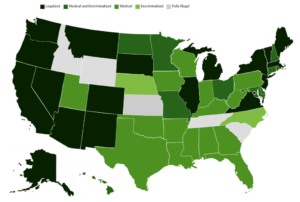| Way Back Then By Allan Mason In 1909 congress passed a copyright law which granted bully privilege to the newly formed ASCAP agency. Now they have the force of the federal government that demands radio stations fork over the big bucks to their organization. Stop playing copyrighted music over your airwaves they demanded. Pay us for the right to play someone else's music.If I were a radio station owner back in 1920, I would have told ASCAP to pound sand! Then I would hire musicians to write music for me. The bottom line is, without airplay where would record sales be? Zero! The music radio station owners had written for them would have taken its place, and station owners would realize record sale profits. Fact is radio stations sell their airtime for profit. If a record producer wants airplay for their product, AKA a record or song... pay for the air time same as advertisers. ASCAP called that Pay-O-La, and made it illegal to do so. Of course they would because it would cost them a fortune to purchase air time in order to sell records. Not nationally, but station by station. second by second. The longer the song, the more it costs to air. Hindsight is beautiful, so what can be done today? Did you know only the song writers and producers receives royalties? The musicians don't get a penny. According to the performers they make a small percentage of record sales, and most of their income from concerts and events. There are more and more independent labels and production companies today, they should work out deals with station owners, Maybe they can include the musicians too. In 1932 the broadcasters successfully lobby seven states to outlaw ASCAP on the basis of illegal racketeering practices and extortion. ASCAP survived an antitrust case in 1937. ASCAP’s share of radio revenue increased from $750,000 to $4.3 million from 1932 to 1939. During this time ASCAP's fees had gone from 3% to 5%, but in the late 30s it tried to double them to 10% of total revenue it charged to play its copyrighted works. Radio stations balked; after all, they had hosted bands to play on the air at no charge just years earlier, since it was seen as good publicity and marketing for the performers. Too bad I wasn't alive back then... I would have let the fight to real success. No air play of their copyrighted material. I faced the same type of discrimination during my tenure as President of Hooter's Sports Production. Prime Sports and ESPN wanted us to pay for airtime for our Hooter's Cup auto racing series, We claimed we have our advertisers you get yours. The networks wanted both. Our money and their advertising. I should have told them to pound the proverbial sand... But Bob Brooks caved in and paid them. ESPN aired the Hooter's Cup Series in exchange for 1.2 million dollars of Hooters advertising on their network. Just a little know inside secret for our readers. |



